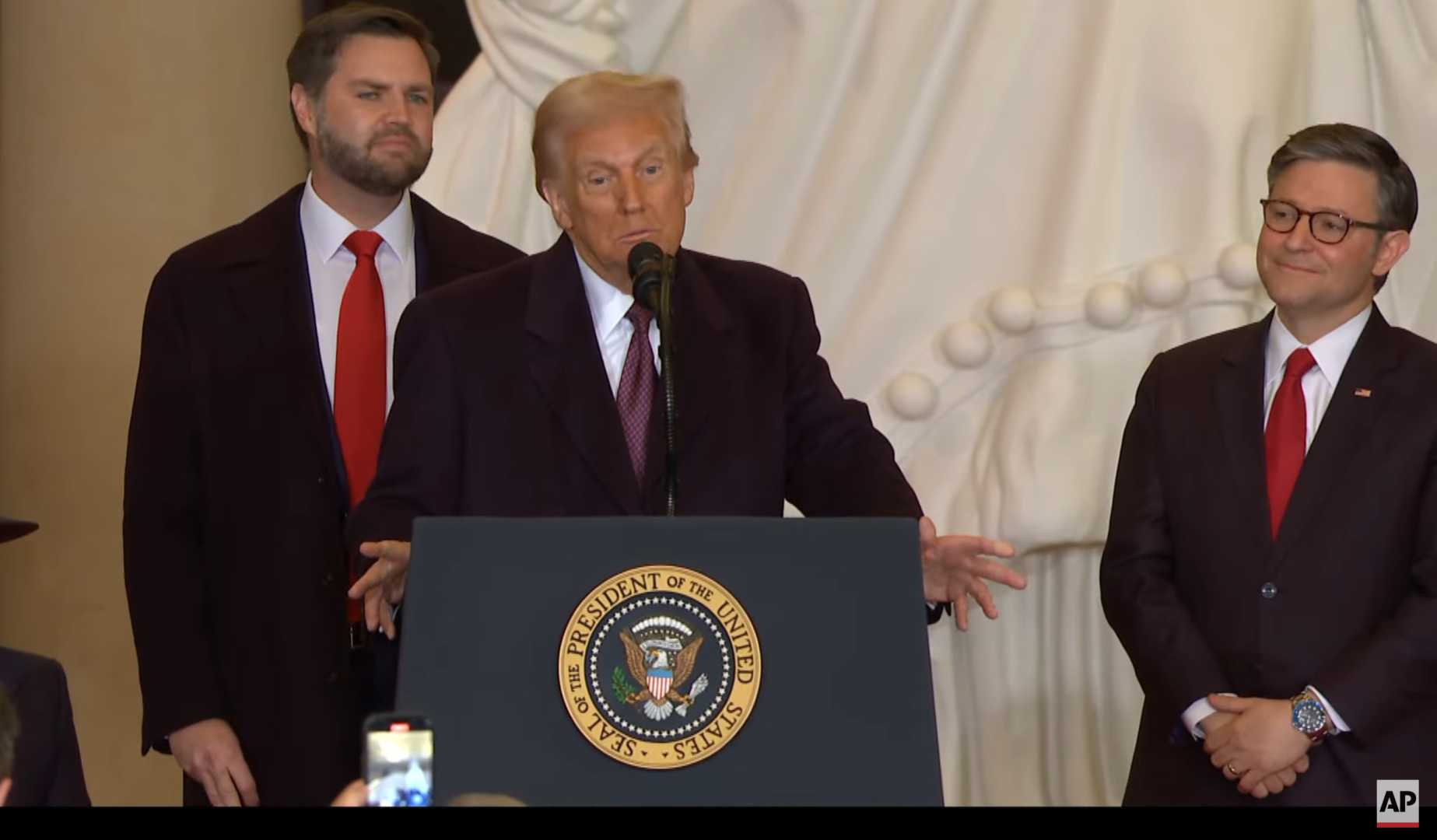Politics
Trump Revokes Biden’s Electric Vehicle Mandate, Targets EV Subsidies

WASHINGTON, D.C. — Former President Donald Trump on Monday revoked a key Biden-era policy aimed at accelerating the adoption of electric vehicles (EVs) in the United States, signaling a sharp reversal in the nation’s clean energy agenda. Trump signed an executive order halting unspent government funds for EV initiatives, ending a waiver allowing states to adopt zero-emission vehicle rules by 2035, and calling for a review of EV tax credits.
The order targets a 2021 Biden administration goal, which was not legally binding, to ensure that 50% of all new vehicles sold in the U.S. by 2030 would be electric. The policy had garnered support from major U.S. and foreign automakers. Trump’s move also directs the Environmental Protection Agency (EPA) to reconsider stricter emissions rules that would require automakers to sell between 30% and 56% EVs by 2032 to comply with federal standards.
“The United States will not sabotage our own industries while China pollutes with impunity,” Trump said during a ceremony at Capitol One Arena, where he signed the executive order before a cheering crowd. He criticized what he called “unfair subsidies” and “government-imposed market distortions” favoring EVs over traditional gasoline-powered vehicles.
Trump’s order specifically seeks to repeal a waiver granted to California, allowing the state to phase out the sale of gasoline-only vehicles by 2035. This rule has been adopted by 11 other states. The order also calls for the EPA to terminate state emissions waivers that limit the sale of gasoline-powered cars.
Environmental advocates condemned the move. “These clean car rollbacks will burden Americans with higher prices, more pollution, and weaker competitiveness,” said Dan Becker, director of the Safe Climate Transport Campaign at the Center for Biological Diversity. “Our kids and everyone with lungs will pay the price for these politically motivated rollbacks.”
Trump’s executive actions are part of a broader effort to dismantle Biden’s clean-energy initiatives, which include subsidies for wind and solar power and the mass production of hydrogen. During his campaign, Trump vowed to boost U.S. oil production and roll back what he termed Biden’s “EV mandate,” though the Biden administration never set a specific date to end the sale of internal combustion engines.
The former president also hinted at further actions, including repealing the $7,500 consumer tax credit for electric vehicle purchases as part of broader tax reform legislation. The move underscores the stark divide between the two administrations on climate and energy policy, with Trump prioritizing fossil fuel industries and Biden advocating for a transition to renewable energy.












